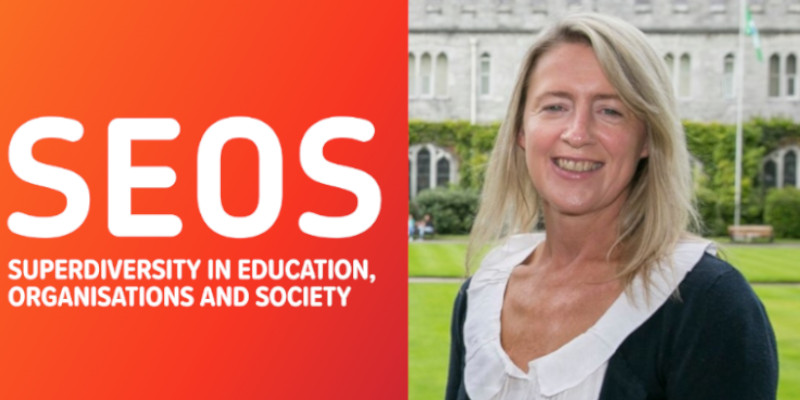News & updates
"We Need Critical Thinkers!” - Dr Claire Dorrity on the New Superdiversity Master’s Programme

Dr Claire Dorrity is a lecturer in social policy in the School of Applied Social Studies at University College Cork. She is the UCC academic co-ordinator of a new UNIC joint programme, the MA SEOS.
Q: What does ‘Superdiversity’ mean?
This is an important question! Sociologist Steve Vertovec describes superdiversity in terms of the ‘complexification of diversity’. In this sense, superdiversity encompasses new types of multiculturalism, shifts taking place in our cities, new migration patterns, population fluctuations, and the diverse needs created by these changes. It is about re-imagining urban spaces and how cities and communities respond inclusively in terms of structure, space and services.
Q: Can you tell me how you first became involved in UNIC, the alliance uniting the eight universities that deliver SEOS?
My first involvement with UNIC was through ISS21 (Institute for Social Science in the 21st Century, UCC), in which I am a research associate and committee member of the Migration and Integration Research Cluster. In the earlier pilot phase of UNIC, ISS21 was the UCC representative in the establishment of the Superdiversity Academy led by Koç University, Istanbul. As part of UCC’s involvement, ISS21 convened a Superdiversity Summer School and a Superdiversity seminar series, inviting discussion and reflection on the challenges of superdiversity in contemporary societies and within Higher Education.
Q: Did you help formulate the idea of the MA SEOS programme?
Yes, all UNIC partners were involved in developing the programme, led by Ruhr University Bochum. My involvement in the development of the MA stemmed from my own research and teaching interests on the topic of cultural inclusion and superdiversity. My teaching practice specifically focuses on some of the core themes relating to superdiversity: decoloniality, rights-based inclusion, and the way we embed diversity in education, organisations and society.
Superdiversity recognises the multidimensional and multidisciplinary responses that are required to address the specific needs of diverse societies: access to services, social justice and cultural inclusion in education, adapting our communities to change, and access to equal opportunities.
Q: What’s special about the MA SEOS programme?
SEOS moves beyond traditional approaches to diversity and shifts the emphasis to working with people in minority groups rather than advocating for them. There is a commitment to rethinking cities and developing inclusive futures through the CityLab methodologies and participatory research. (CityLabs are defined opportunities for students to work directly with city and community partners through co-creating approaches and responses to societal challenges).
The MA SEOS programme is thus one of its kind; there are limited programmes available that cater to societal needs in this way. It is also a unique opportunity for students to work with one another on solutions to societal problems and to engage with other students from diverse backgrounds across all participating institutions.
The integrated mobility elements also bolster internationalisation and the creation of new knowledge exchange through the integration of the expertise of the eight universities. The programme also provides opportunities for staff mobility and academic exchange across the UNIC alliance and beyond.
Q: Who should apply?
The programme invites students with an undergraduate degree from a wide variety of disciplinary backgrounds, including but not limited to social science, educational science, management, organisations and leadership. The programme will also be of relevance to students with an interest in Equality, Diversity and Inclusion (EDI), migration, culturally sensitive and inclusive teaching and learning practice, diversity in public/private institutions and social transformation. SEOS will provide students with skills to work in superdiverse educational, organisational and societal settings. Career areas could include community practice, social research, management settings, human resources, policy evaluation, and EDI development.
Q: What might an MA SEOS student expect from the programme?
For our students I think it will be an amazing journey, as they learn and research across universities, both in person and virtually. This will provide immense opportunities for knowledge-building and exchanging diverse perspectives.
The MA SEOS looks at challenges that society is grappling with and explores new ways of finding solutions – for this we need critical thinkers! We need people to think with a critical lens to enable new innovative and human-centred dialogue and co-created solutions. Using CityLabs provides students with real-world experiences and skills that can be applied to community settings. It encourages critical evaluation, collaboration and practical skills that are fundamental to address complex societal challenges.
Find out more about the MA SEOS joint master’s programme and apply: https://www.unic.eu/en/seos.

-200x106.jpg)
